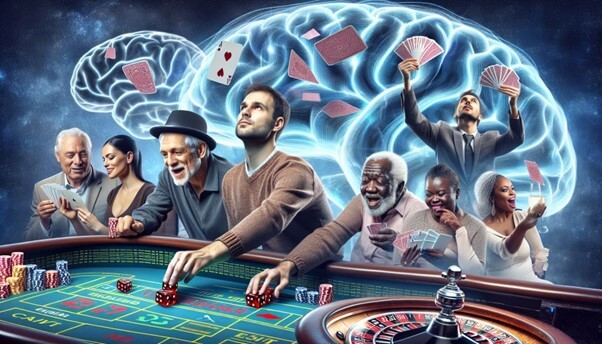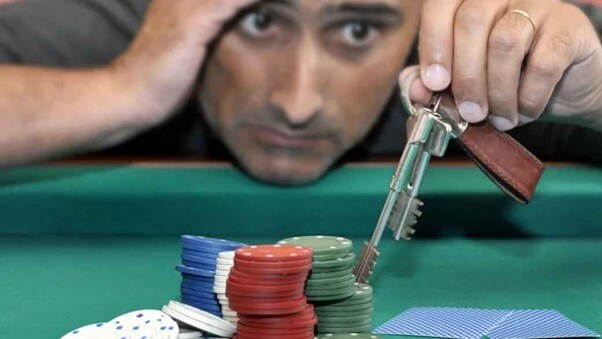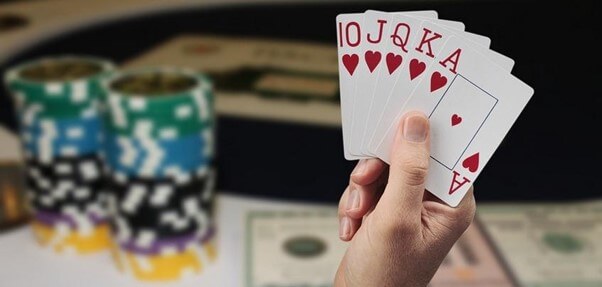Exploring the Psychological Influences of Gambling Behavior – Psychology of Gambling
Human interaction with risk-taking ventures has long captivated thinkers, both in academic circles and beyond. Choices made in high-stakes scenarios reveal deeper forces at play within individuals, shaping decisions that often defy logical reasoning. These choices can serve as a mirror, reflecting underlying emotions, motivations, and societal influences that govern actions.
Engaging in high-risk activities often triggers complex cognitive processes that can lead to unexpected outcomes. Not only does this engagement reveal individual characteristics, but it also highlights how external factors sway judgment. The portrayal of success and failure in these activities frequently intertwines with personal identity, influencing self-esteem and life satisfaction.
Read more +
Furthermore, understanding the driving factors behind these decisions can facilitate broader insights into societal norms and values. Investigation into this realm allows for a comprehensive examination of how impulses, temptations, and social constructs contribute toward patterns of engagement in risky choices. This exploration yields a richer understanding of human behavior, enabling better support systems and interventions for those navigating these turbulent waters.
The Allure of Risk-Taking in Gambling
Engaging in activities that involve a degree of uncertainty often fascinates individuals who seek excitement and thrills. This attraction stems from a complex interplay of emotions and motivations that drive people to embrace situations fraught with potential gains and losses. The blend of hope and anxiety creates a compelling experience, urging participants to challenge boundaries in pursuit of reward.
Risk-taking can evoke strong emotional responses, leading to a cycle of exhilaration and regret. Understanding this phenomenon involves examining various factors that contribute to the appeal of embracing uncertainty, particularly in environments where financial stakes are involved. This pursuit frequently blurs the lines between entertainment and obsession, as individuals navigate their desires and impulses.
| Factors Contributing to Risk-Taking | Effects on Individuals |
|---|---|
| Thrill-seeking behavior | Increased adrenaline rush |
| Social influence | Shared experiences enhancing excitement |
| Chasing losses | Escalating commitment to recover investments |
| Illusion of control | Boosted confidence in decision-making |
Recognizing the factors at play can illuminate why certain individuals gravitate toward these high-stakes environments. The combination of emotional highs and lows creates a unique dynamic, offering a transient escape from mundane life. As people immerse themselves in these high-risk scenarios, they often grapple with both the thrill of victory and the sting of defeat, ultimately shaping their experiences and choices.
Cognitive Biases That Influence Gamblers
Cognitive distortions play a significant role in shaping decision-making processes for individuals engaged in games of chance. These mental shortcuts often lead to skewed perceptions and misjudgments, fostering an environment where flawed reasoning becomes prevalent. By understanding these biases, one can gain insight into why some players may continue to chase losses or overestimate their chances of winning.
Illusion of Control is a common phenomenon where individuals believe they have influence over random outcomes. Gamblers may feel that specific strategies or behaviors can affect results, despite the inherent unpredictability of games. This conviction can lead to increased participation and even risky choices.

Availability Heuristic affects judgment based on immediate examples that come to mind. Players might recall recent wins more vividly than losses, resulting in an optimistic outlook that reinforces continued play. Such selective memory can distort reality and promote a false sense of confidence.
Confirmation Bias drives individuals to favor information that aligns with their beliefs while ignoring contradictory evidence. Those involved with chance-based activities might focus on success stories, dismissing outcomes that contradict their winning narrative. This tendency can perpetuate a cycle of repeated involvement, despite adverse results.
Near Miss Effect refers to the emotional response triggered by outcomes that are close to winning. Experiencing a near-win can evoke a strong sense of hope, leading players to underestimate the likelihood of future losses. This bias can encourage further engagement, as individuals may believe that victory is just around the corner.
In conclusion, various cognitive biases can heavily influence decision-making patterns among players. Recognizing these mental traps is essential for understanding their persistent involvement in games of chance and for developing strategies aimed at mitigating adverse consequences.
The Role of Emotion in Betting Decisions
Emotions often play a pivotal role in the choices individuals make while engaging in wagering activities. These feelings can significantly influence decisions, sometimes overriding logical reasoning. Understanding the interplay between affective states and decision-making processes is crucial for comprehending why certain individuals may take risks while placing bets.
Various emotional factors come into play during the wagering experience:
- Excitement: The thrill of potential rewards can heighten feelings of exhilaration, prompting individuals to make spontaneous choices.
- Anxiety: Fear of loss may lead to defensive betting strategies or avoidance altogether, affecting engagement levels.
- Desperation: In the face of previous losses, individuals might place larger bets in hopes of recovering, demonstrating a classic response to adverse situations.
- Joy: Positive experiences can create a sense of euphoria, encouraging repeated behaviors even in the absence of rational assessments.
Additionally, emotions can create feedback loops:
- Initial wins may elicit joy, leading to increased risk-taking.
- Subsequent losses can provoke frustration, which may result in chasing losses with larger stakes.
- This cycle reinforces a pattern over time, making it difficult for individuals to break free from emotionally-driven decisions.
Ultimately, recognizing how feelings shape choices in wagering scenarios can provide insight into broader patterns of decision-making. Balancing emotional responses with rational thought remains a key challenge for many individuals involved in these activities.

Addiction Mechanisms and Gambling Behavior
Understanding how compulsive tendencies manifest can provide insights into why individuals engage in high-risk activities in spite of negative consequences. These tendencies are influenced by a range of factors that intertwine with emotional states, decision-making processes, and social contexts.
Neurochemical Interactions
One key element determining compulsive engagement in risky ventures involves the brain’s reward system. Activation of specific neurotransmitters plays a crucial role in reinforcing particular actions. Key components include:
- Dopamine: Often referred to as the “feel-good” neurotransmitter, it contributes significantly to pleasure experiences.
- Serotonin: This chemical is linked to mood regulation and can affect impulsivity levels.
- Norepinephrine: Associated with arousal, this neurotransmitter can heighten alertness during high-stakes situations.
Behavioral Patterns
Compulsive engagement often leads to the development of certain behaviors that can further perpetuate the cycle of addiction. Some common patterns include:
- Chasing Losses: Individuals may continue to participate in an activity to recoup previous losses, creating a detrimental cycle.
- Risk-Taking: A tendency to partake in increasingly dangerous choices as initial rewards lead to heightened excitement.
- Social Comparison: The act of measuring one’s accomplishments against others, which can escalate competitive spirits.
Recognizing these mechanisms is essential for understanding why some individuals become entrapped in cycles of risk-taking activities, ultimately affecting their overall well-being.
Societal Norms and Their Effects on Gambling
Social standards play a pivotal role in shaping attitudes towards chance activities. These unwritten rules govern how individuals perceive risks associated with these endeavors, influencing their actions and decisions. Norms can either discourage or promote participation, significantly affecting the prevalence and acceptance of risk-taking behaviors within a community.

Cultural Influence on Participation
Cultural contexts contribute greatly to how chance-based activities are viewed. In some societies, such pursuits are celebrated and seen as a pastime, while in others, they are stigmatized, leading to a range of responses from individuals. Understanding these cultural dynamics offers insight into how societal expectations mold personal choices related to risk.
Regulatory Frameworks and Social Perception
Legal structures often reflect societal views, regulating participation in chance activities. Where legislation is permissive, participation tends to be more normalized, promoting a broader acceptance. Conversely, strict regulations can reinforce negative perceptions, dissuading individuals from engaging. These frameworks serve as both a reflection of and a contributor to prevailing social attitudes.
| Aspect | Positive Influence | Negative Influence |
|---|---|---|
| Community Attitudes | Encouragement of participation | Stigmatization and shame |
| Cultural Celebrations | Integration into social rituals | Exclusion from mainstream activities |
| Legal Restrictions | Promotes responsible activities | Fosters underground participation |
Strategies for Responsible Gambling Practices
Engaging in games of chance can be thrilling, yet it is crucial to approach such activities with caution and mindfulness. Implementing effective methods can help individuals maintain control, ensuring that participation remains enjoyable without adverse effects on one’s life.
Setting limits is paramount. Establish a clear budget that dictates how much money can be spent, and adhering to it strictly can prevent excessive losses. Additionally, designating time frames for play can aid in managing the frequency of involvement, reducing the risk of losing track of time.
Awareness of one’s emotional state is vital. Recognizing triggers that may lead to impulsive decisions or distress can empower individuals to step back when necessary. If feelings of frustration, anger, or elation arise, taking a break can provide perspective and help avoid irrational choices.

Engaging in discussions with friends or family about experiences can foster a support system. Open conversations regarding habits and feelings associated with play can cultivate accountability and provide emotional reassurance. Seeking help from professionals when needed is equally important, as they can offer guidance and strategies tailored to individual situations.
Lastly, educating oneself about the activities involved is essential. Understanding the odds, risks, and potential outcomes can promote informed participation. Knowledge empowers players to make calculated decisions, enhancing the overall experience while mitigating potential negatives.
You May Also Like

With over a decade of experience in the gambling industry, encompassing both traditional and online gaming, the author has established themselves as a seasoned expert. What initially began as a simple hobby of crafting descriptions for casinos and online slot machines gradually evolved into a daily pursuit, consuming a significant portion of their time. Martins doesn’t limit their writing to online casinos alone, but also offers valuable insights into the world of sports betting. This extensive background ensures a wealth of knowledge and expertise in the field of gambling.














